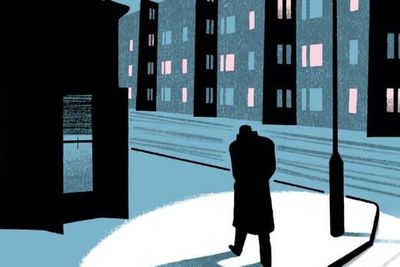It is not every day we have the opportunity to say something new about a classic. But almost seventy years after the first edition of Gerard Reve’s The Evenings appeared in the Netherlands in 1947, the classic Dutch work has finally been translated into English.
Reve, who died in 2006, came into the literary spotlight at a crucial moment during the post-war period and continues to hold an important place in the Dutch literary canon. He is both notable and controversial for being the first openly gay Dutch writer. The Evenings, his debut novel, describes the efforts of the 23-year-old Fritz Van Etgers’ to pass the hours over the course of ten days in 1946. As a novel it is a neurotic, darkly humorous and cynical treatise on youth in the Netherlands after World War II.
Fritz, a lowly office worker, lives with his parents and spends his evenings bouncing between friends in hopes of finding entertainment and meaning. In both his relationship with parents and his friends, he is rude, lazy, uncouth and completely insufferable. He tortures his acquaintances daily by teasing them about their coming baldness (a persistent theme throughout) or by poking fun at the dead and dying. Aging is the worst fate imaginable for Fritz. “Old people cause a lot of the world’s misery,” he says. “They contaminate our lives.” Yet the idea of aging carries a sort of spiritual weight in the novel. Fritz considers it an “abscess” of the “soul.” This decay of the soul alongside the body gives the book an interesting philosophical bent.
At the end of each evening, Fritz returns home to his parents, whom he completely despises. Reve is successful in framing Dutch post-war angst through Fritz’ relationship to his parents and others of their generation. The rejection of their manners and quirks seems concretely linked to blame for the horrors of World War II, something Fritz’ generation would have felt little responsibility for. And though the war is only mentioned on one occasion, the deep-rooted cynicism it creates flows through the book. The persistent impotence and resentment it instills manifests itself clearly in the book’s portrayal of youth.
Sexual repression is a major theme in the work, but it often appears in a subtler way. Fritz and his male acquaintances are deeply misogynistic, going so far as to state that women are incapable of logical thought. Yet in spite of the grotesque, often gruesome descriptions of everything else, Fritz has relatively little to say about sex with women. Nor does he say anything about attraction to men. His self-obsession seems to obstruct the possibility of attraction to others. Instead, the book is filled with strange scenes of Fritz examining himself closely in the mirror. There are occasional vague references to homosexuality that contribute to the pervasive sexual tension throughout. Maurits, one of Fritz’ strangest acquaintances, speaks at one point about his desire to “strangle little boys in the woods.” Fritz answers by teasing Maurits about his same-sex preferences, saying nothing of the criminal violence accompanying them. These dark, unsettling interactions make up a large part of the dialogue.
As its title suggests, The Evenings is about Fritz’ consuming desire for a night well spent. And while it is at many points elusive, the book is innovative in its use of language. Reve successfully evokes a strong sense of psychological unrest in the mind of reader. That said, The Evenings is a slog. The symbolism feels artificial and the characters are repulsive. Worse still, it is uninteresting. Over the course of roughly 300 pages (which felt twice as long), the reader has the sense of nothing changing except the hour on the clock. Perhaps this is Reve’s overarching message. But if that is indeed the case, I prefer to spend my evenings reading something else.
The Evenings by Gerard Reve
Translated by Sam Garrett
Pushkin Press
317 pages
$22
